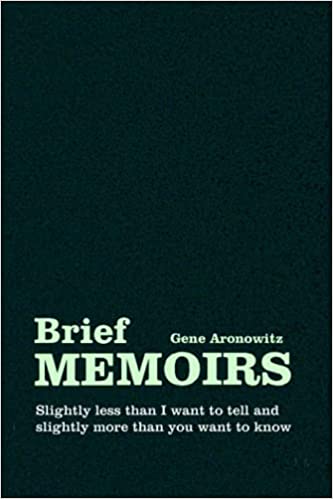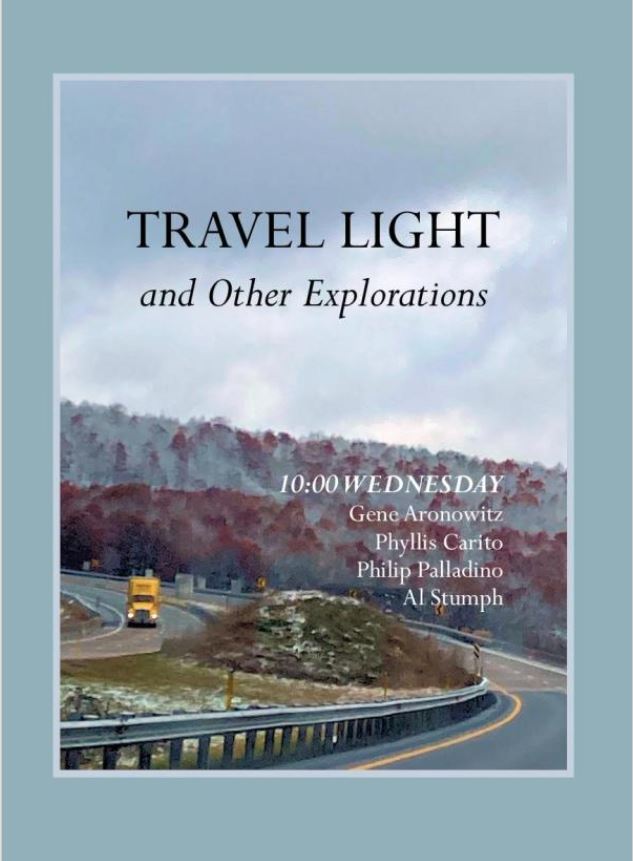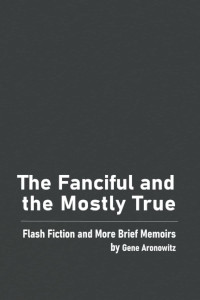Panic
By Gene Aronowitz
A good day in my classroom was when I could say what I needed to say without gasping for breath. I was a student-teacher in my senior year at the University of Delaware. I had not intended to become a teacher when I entered college but, rather, assumed I would become a physician. I took many science courses, primarily biology, but, because of abysmal grades, I soon understood that getting into medical school was inconceivable. Dentistry was a possibility, I thought, but doubtful. My grades continued to slide and I concluded that even being a dentist was unattainable. So all I could hope for was to graduate with some vestige of honor. There’s a ridiculous statement we used to say to rag on our teachers: If you can … do. If you can’t … teach. I changed my major from biology to secondary education.
In our community, growing up Jewish brought with it high expectations for academic achievement. Most of my friends were also Jewish and I imagined that they were all destined to become doctors or lawyers. I was the failure. My high school guidance counselor told me to forget about going to college but, rather, to get some sort of trade training. If it had not been for sports, at which I was better than average, I would have thought of myself as a total loser - a least likely to succeed. I graduated in the lower fifth of my high school class and was doing no better in college.
However, in the middle of my junior year, I had an eye operation to clear up a vision impairment that turned out to be the major explanation for my trouble in school. When I sought help at the university reading clinic, I learned that even after three years in college, I had only the reading ability of a tenth grader. The operation and reading lessons helped considerably and I began to do better academically. More importantly, my self-image as a screw-up began to erode and a sense of confidence began to develop. However, both of those changes were slow and tentative.
When I began to student-teach high-school biology, I got along great with the students and my teaching seemed to be going well until the day I was to present material on which I had failed an exam the previous semester and which I had not since studied sufficiently. My familiar concern about appearing stupid took over and, as I began the lesson, I had difficulty speaking, periodically gasping for breath. Even though it was cold outside, I opened the window to get some air and, while it was easier to speak, I paused frequently to take a breath. The students were patient with me and seemed sympathetic but I was distressed and embarrassed. From that day forward until student-teaching ended, I was over-prepared for each class and made sure the window was open at least a crack. I managed to get through that year of school and was able to graduate, but just barely, 334th out of 404 students, again in the bottom fifth of my class.
I didn’t want to be a teacher, not because I looked at it disparagingly, but because the thought of having to speak all day in closed classrooms was terrifying. I considered several alternatives. I had spent many of my summers working at the Jewish Community Center of Wilmington, Delaware, mostly as a camp counselor, lifeguard, and swimming instructor. I liked the idea of spending my time in a setting like that. Social group work as a career seemed appealing. I applied to six graduate schools of social work and was accepted by only one, which was then threatened by a loss of accreditation. I received a fellowship that required that I work in a Jewish Community Center for two years after graduation and moved to Louisville, Kentucky to fulfill that commitment.
It was there that I had my next experience with public speaking. I had written a paper about one of the programs I created and was asked to read it at a meeting of the local chapter of the National Association of Social Workers. I was apprehensive but agreed to do it.
The day before the presentation, I asked my supervisor if he would listen to the paper and provide feedback. He agreed and we sat down in his office. I began to read and immediately had difficulty catching my breath. He tried to help me relax but I decided to stop reading, fearing that failure in front of just this one person would poison the real event. I left work early, went home, and hardly slept that night, knowing that some important people were expected to attend the meeting, including, I was told, the Dean of the University of Louisville Graduate School of Social Work. At twenty-five years of age and a neophyte in the field of social work, I considered this the equivalent of a Broadway audition.
The next morning I was filled with dread, wading through the increasingly disastrous scenarios flooding my mind. I was tense and so terrified I could hardly eat. I knew then as I know now that I often eat to reduce anxiety, so not being able to eat made matters considerably worse.
At the meeting, the president of the organization introduced me. I stood up, stepped over to the podium, opened my binder, thanked the president, looked down, and saw that the page was wet where my fingers were touching it. As I focused on my sweaty hands, I noticed that there was a slight tremor in the pointing finger and it was difficult to keep it on the correct line.
When I began to read, I felt both my throat and chest tighten. I opened my mouth as wide as I could and expanded my chest but felt nothing coming in. Preoccupied with breathing, I couldn’t remember what I had just read. I stood there, terrified and ashamed.
The president, sitting beside me, offered me a glass of water but my hand was shaking so much that I was afraid to bring it to my lips. He offered me a lozenge which he sensitively unwrapped before handing it to me. I nodded, slipped it into my mouth, sucked on it, and waited to calm down and waited, and waited, and waited.
While I stood there, I wondered if I would be able to get through my presentation or if I should just sit down or, better yet, leave the building. I wondered if this would happen again whenever I needed to speak in public. I noticed that almost no one in the audience was making eye contact with me and wondered what they were thinking and what they would say to their colleagues who had not come to my presentation.
After a very long silence, I was able to read the entire paper. That reading is no longer part of this onerous memory. I remember only the panic. I went on to get a Ph.D. and to have a very successful career including fifteen years as a public official. For ten of those years, I gave presentations to large groups at least every week and, although I frequently had a bit of difficulty speaking, I never again experienced anything like what happened that day. Nevertheless, every single time I need to speak to a group, I worry that it might happen again. The fear never ever goes away


